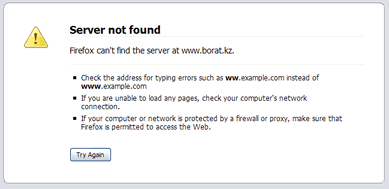Net neutrality round-up
Posted on Tue, Jul 18, 2006 at 3:31 PM by Andrew ChadwickNet neutrality emerged as a controversial policy issue in the US, and, increasingly it would seem, in European countries as well, after my book went to press. It's a constantly moving target but some kind of punctuation has recently been achieved with the US Senate's Commerce Committee's rejection of a neutrality proposal. The Committee was unable to reach a majority decision and tied votes at 11-11. Democratic Senators backed the proposal, an amendment to the new Telecommunications Bill. The House of Representatives had rejected a similar amendment back in early June. From the CNet News article:
"Democrats had rallied behind an amendment, adapted from a standalone bill they offered in May, which would have barred network operators from discriminating "in the carriage and treatment of Internet traffic based on the source, destination or ownership of such traffic." That could have prevented Verizon from inking deals to offer high-definition video and prioritizing that on its network, for instance.
Without new rules prohibiting such practices, "we're giving two entities, the Bells and cable, the power to be able to cut deals, and that will change the relationship of entrepreneurs to the Internet and to the financial marketplace," said John Kerry, the Massachusetts Democrat."
You might be wondering why net neutrality matters? Fundamentally it's a classic case of how infrastructure regulation has implications for the kinds of services and content that will be produced and consumed online. If you like the idea of people being able to freely create and distribute online content and offer useful services to people who can access those services freely, you'll be in favour of net neutrality. If you don't mind large telecommunication and/or media companies charging higher prices for people to create and consume certain content and services, or, worse still, completely denying access in some cases, then you'll be against it. The "neutrality" concept is analagous with telephone service. As Google puts it: "just as telephone companies are not permitted to tell consumers who they can call or what they can say, broadband carriers should not be allowed to use their market power to control activity online." Here is a collection of useful links to read more about this:
CNet News with lots of links to older stories
Susan Crawford's Net Neutrality FAQ
And finally... a funny take by Jon Stewart (clip on Youtube)
